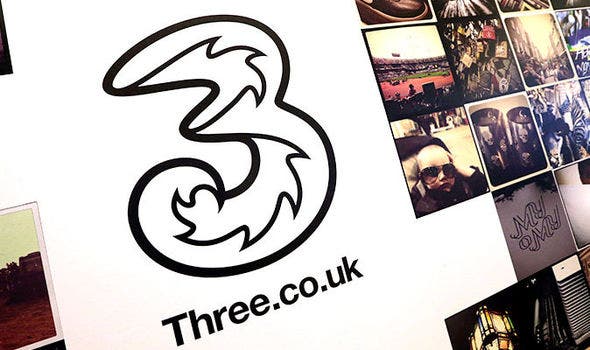Three UK is currently divesting Samsung’s 4G wireless devices. This is because it is introducing devices from Huawei to ensure interoperability between its 4G and 5G networks. The operator operates the smallest of the four mobile networks in the UK. Before moving to Samsung in the 4G era, it worked with Nokia to establish the original 3G Radio Access Network (RAN). In August last year, Huawei announced that it would become the sole supplier of its 5G RAN technology.

This raises doubts about Three’s commitment to Samsung. Experts say that a carrier that builds a “non-independent” 5G network must purchase 4G and 5G equipment from the same vendor to avoid interoperability issues. It appears that Three contracts with Huawei include replacing Samsung’s 4G network and installing new 5G devices. Mike Eales, director of network services strategy and architecture at Three, said: “With Huawei’s project, we are replacing Samsung’s 4G and deploying 5G.”
Given the security concerns surrounding the company, serious reliance on Huawei may be risky. American hardliners see it as a channel for Chinese spies. The UK government is currently conducting a supply chain review. This will determine of Huawei remains part of the country’s 6G network.
Three Uses Nokia For Its Core Network
Three UK operation assumes that any ban will be limited to the core part of the network. Including the central part of the network that routes traffic and important IT systems. Its main core network provider is Nokia. Shaun Smith, the head of the Three 5G projects, said that the National Cyber Security Center (NCSC) responsible for security matters is fully involved in the Three procurement process, and any decision that affects the RAN will be “unusual”.
He said: “This will damage all operators in the UK in a very similar way”. He pointed out that other service providers in the UK are also heavily dependent on Huawei’s mobile devices. “It’s worth remembering that in our topology, our new core is from Nokia. This is where all the intelligence is. The radio kit is running, this has the supervision of the NCSC.”
Equipment Replacing Is Quite A Menace
Considering the hassle and cost of replacing one supplier with another, it is not easy to switch from Samsung to Huawei. Vodafone UK previously said that it will replace Huawei’s 4G equipment (about 6,000 of its 18,000 mobile stations using 4G equipment) in opposition to a total ban on 5G networks. All of this shows that Huawei’s bid for the RAN contract is very competitive. Also, Three executives are not satisfied with Samsung’s 5G capabilities. Three plans to launch mobile 5G services in the fourth quarter of this year. It also plans to operate in 25 towns by the end of 2019. Three has approximately 16,700 mobile sites across the UK.
The company estimates that its rich spectrum of reserves – acquiring UK Broadband for £250 million ($316 million) in 2017 – will enable it to offer faster and more reliable 5G than its competitors. In recent tests in central London, its average download speed on 5G networks increased from 25 megabits per second on the 4G network to 138 megabits per second. The company plans to launch a 5G-based fixed wireless access (FWA) residential broadband service in August.
Via | Featured Image Source: express.co.uk





